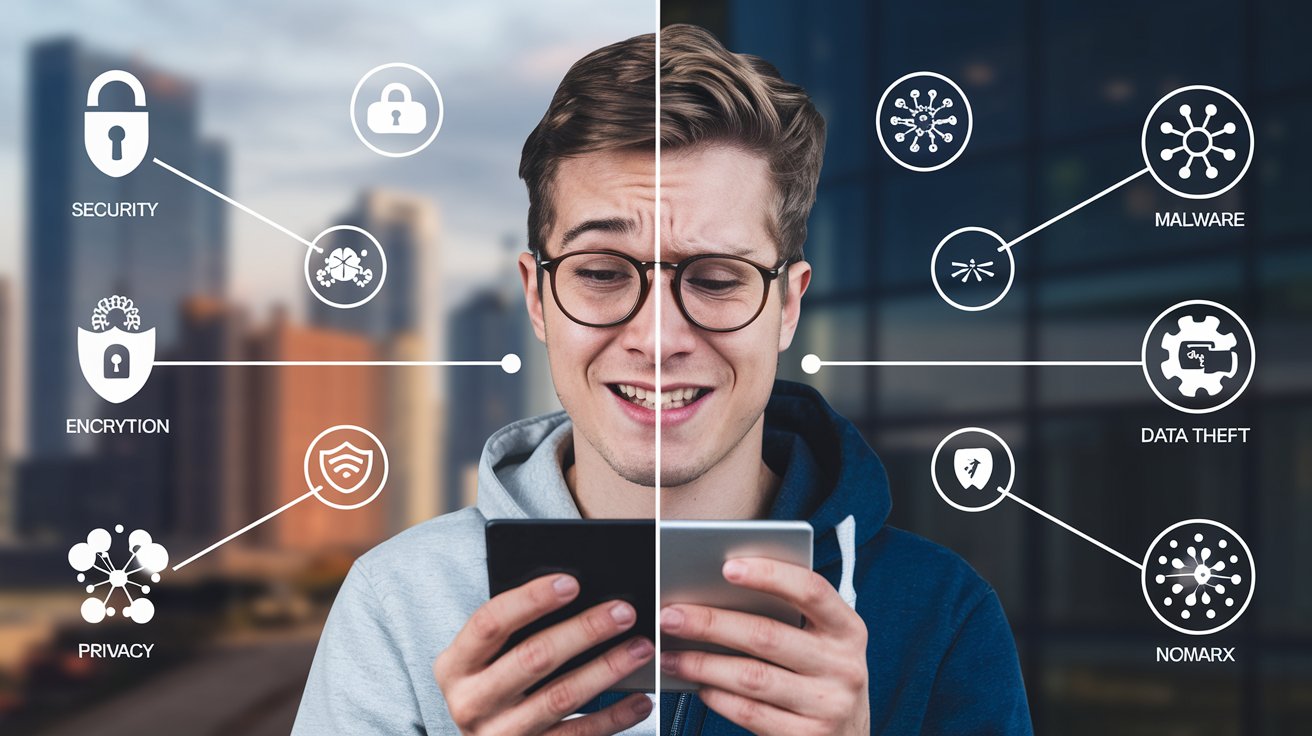Is Your VPN Actually Malware? Here's What You Must Understand
Virtual Private Networks (VPNs), which offer users anonymity and protection when they browse the internet, have grown in popularity in an era where concerns about digital privacy are on the rise. VPNs are not all made equal, though. In actuality, some VPNs may do more harm than good by serving as a gateway for malware rather than a defence against it. This article explores the possible dangers of utilising VPNs that could be malware in disguise, providing advice and insights to make sure your security isn't compromised.
The Fundamentals of VPN Understanding
The service that establishes a safe, encrypted connection between your device and the internet is called a virtual private network, or VPN. This essentially hides your IP address and makes your online activity more private by routing your data through a server owned by the VPN provider. VPNs are frequently utilised for:
- Safeguard private information.
- Obtain geo-restricted material
- Keep your identity private when you browse
Although VPNs are becoming more and more popular, many users are not aware of the risks that some of these services may pose.
The Negative Aspects of Free VPNs
Although there are plenty of trustworthy VPN services out there, a large portion of free VPNs are less reliable. Although free VPNs may seem like a wonderful deal, they frequently have unstated drawbacks, especially when it comes to security and privacy. This is the reason:
- Data Harvesting: Free VPN services must find a way to generate revenue, and they frequently accomplish this by gathering and selling your personal information to outside parties. This negates the initial goal of utilising a VPN.
- Trackers and adverts: A lot of free VPNs inundate users with trackers and adverts, which not only detract from the user experience but also provide further privacy risks.
- Restricted functionality and Bandwidth: Free VPNs frequently offer restricted functionality and bandwidth, which reduces their usefulness for streaming and gaming.
- The most concerning problem is that some free VPNs are really spyware hiding in plain sight. They might put dangerous software on your device instead of protecting it, which could damage it or steal your data.
How Malware-Infested VPNs
Work Malware-infested VPNs can function in a number of ways, frequently without the user being aware of the danger. Here are a few typical strategies:
- malware and Adware: Certain VPNs infect your device with malware or adware, which can track your activity, gather data, and show you intrusive advertisements.
- Botnet Integration: Malware-infected VPNs have the ability to occasionally make your device a component of a botnet. Networks of infected devices known as "botnets" are used to launch extensive attacks like Distributed Denial of Service (DDoS) attacks.
- Data Theft: Sensitive information, including banking information, personal information, and login credentials, can be stolen via malicious VPNs.
- Ransomware: VPNs have occasionally been used to distribute ransomware, which can prevent you from accessing your files or device until a ransom is paid.
Red Flags: How to Spot a Questionable VPN
Although it can be difficult to spot a dubious VPN, there are a few warning signs to look out for:
- Too Good to Be True: A VPN may seem too good to be true if it provides premium features for free. High-quality VPN services need a lot of resources to run, and if a service is free, it's probably generating revenue in other, less obvious ways.
- Absence of Transparency: Reputable VPN companies are open and honest about all aspects of their business, including ownership, terms of service, and privacy policies. Be cautious if you are unable to locate this information.
- Unfavourable Reviews: Look for ratings and reviews from reliable sources. Steer clear of a VPN if there are frequent concerns about malware or unfavourable reviews.
- Excessive Permissions: If a VPN program asks for too many permissions on your device, such access to your contacts, SMS, or camera, proceed with caution. This can indicate malevolent intent.
The Best Methods for Selecting a Secure VPN
Use these essential measures to make sure you're selecting a trustworthy and safe VPN:
- Research and Reviews: Read reviews from reliable sources and carry out in-depth research. Seek out VPNs with a solid reputation and independent auditing.
- Privacy Policy: To learn how your data is handled, carefully read the privacy policy. Steer clear of VPNs that share your data with third parties or log your actions.
- Transparency: Select VPN service providers with clear contact details and an open and honest description of their business practices. Reputable VPNs have a clear no-logs policy and frequently release transparency reports.
- Security Features: Seek out VPNs with DNS leak prevention, kill switch functionality, robust encryption, and other security features. These elements contribute to the security of your data.
- Paid vs. Free: Take into account spending money on a premium VPN service. Although there are some reliable free VPNs, paying providers typically provide greater privacy, performance, and security.
- Customer Service: Reputable VPN companies provide excellent customer service. Verify whether the VPN has a helpful support staff that can help you with any problems or questions.
Well-known and Reliable VPN Services
The following well-known and reliable VPN providers are renowned for their dependability and security:
- ExpressVPN: A popular option for many customers, ExpressVPN is renowned for its fast speed, robust security features, and first-rate customer service.
- NordVPN: This well-known provider has a stringent no-logs policy and sophisticated security features.
- CyberGhost: CyberGhost is an excellent choice for novices because to its user-friendly apps and strong privacy features.
- Surfshark: Surfshark is a powerful yet reasonably priced VPN service that offers robust security features and an infinite number of simultaneous connections.
- Private Internet Access (PIA): PIA provides a dependable VPN service at an affordable cost and is renowned for its openness and dedication to privacy.
Other Advice on Internet Safety
One way to keep safe online is to use a VPN. Here are a few more pointers to improve your online safety:
- Frequent Updates: To guard against vulnerabilities, keep your operating system, apps, and software updated.
- Strong Passwords: Make sure each account has a strong, one-of-a-kind password, and think about using a password manager.
- Two-Factor Authentication: To increase security, turn on two-factor authentication (2FA) for your accounts.
- Phishing Beware: Watch out for phishing emails and websites. Don't download attachments from unidentified sources or click on dubious websites.
- Protect Your Wi-Fi: Make sure your Wi-Fi network is safe by setting up WPA3 encryption, if it is available, and using a strong password.
- Frequent Backups: To guard against data loss from malware or other problems, regularly backup your data.
In conclusion
VPNs can be an effective tool for improving your online security and safeguarding your privacy. To prevent becoming infected with malware, it is essential to carefully select your VPN provider. You may take use of a VPN without sacrificing your security if you adhere to the best practices mentioned in this article and exercise caution.
Long-term benefits will result from taking the time to investigate and choose a reliable VPN, guaranteeing that your online activities stay private and secure. Make the most of the digital world without taking any risks by being aware and staying secure.


